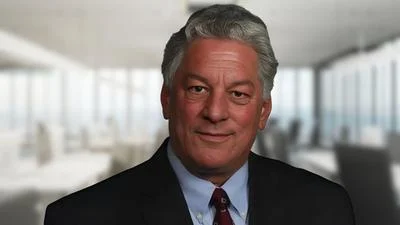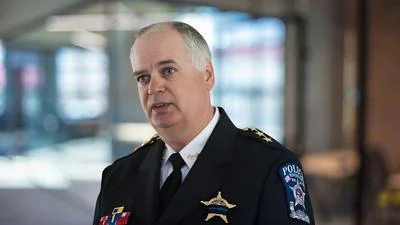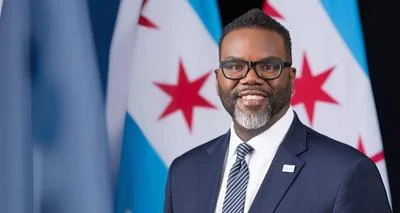Catholic Theological Union issued the following announcement on Sept. 9.
Readings:
First Reading: Isaiah 35: 4-7A
Psalm 146: 6-7, 8-9, 9-10
Second Reading: James 2: 1-5
Gospel: Mark 7: 31-37
"Are you deaf? Are your parents deaf? Are you from New York?" Inevitably those are the questions I am asked by deaf people who catch me signing. While neither I nor my parents are deaf, traces of those who traditioned me in my teen years are coded into my signs and style: Deaf elders and kids, and the hearing priest who accompanied them in the Archdiocese of New York. They were alumni and students of the schools for the Deaf in the New York City area -- St. Joseph's , Fanwood , and Lexington .
From them, in my youth, I learned that the encounter between Jesus and the deaf man in the gospel of Mark has particular significance in Deaf communities. The Aramaic word Ephphatha is finger spelled on the seal of Gallaudet University, the world's first and only university "barrier-free for deaf and hard of hearing students. " Ephphatha" also appears as a name for any number of organizations, newsletters, schools, and initiatives across the globe associated with the deaf. Thomas Coughlin , the first Deaf man ordained as a Catholic priest in the USA, and a CTU honorary degree r ecipient in 2011, established a Foundation and a Camp , Mark Seven, in clear reference to this gospel . In some Christian communities this same gospel is used on the designated Deaf Mission Sunday .
While biblical scholars see in Jesus' actions a possible allusion to a magical incantation formula in a miracle narrative, some Deaf interpreters see Jesus attempting to communicate in a homemade sign language a call to discipleship, specifically an invitation to those who are deaf. Ephphatha, "be opened," is less about a miracle and more about empowerment. As Coughlin explains, when Jesus commanded the deaf man to "open up" he in effect instituted a mission of ministry to be accomplished by deaf people.
For Deaf Catholics this call to active discipleship is especially significant considering a history of being deprived of access to several sacraments because of a mistaken assumption that one needed to hear in order to understand and respond to God's word. For Deaf people who perceive themselves to be part of a linguistic minority, deafness is not an impairment or an obstruction to faith, rather the attitudes of those who privilege hearing are the obstacle.
Min Seo Park , the first Deaf man ordained in the history of the Catholic Church in Asia, raises the question of agency with respect to Mark 7: 31-37. "I am wondering if the hearing people had asked the Deaf man if he wanted to hear and speak before they brought him to Jesus Christ; did they bring him without discussing it with him?"
Such a question undoubtedly makes any number of hearing people profoundly uncomfortable, at the same time it counters the audism underlying preferred interpretations of this gospel. Audism assumes the normativity and superiority of hearing to the point that deaf people are rendered vulnerable and dis-abled, subject to the authority of those favored because of their aural and oral abilities.
These shifts in interpretation to discipleship and agency by Deaf interpreters challenge tendencies in teaching, preaching, and theologizing to use physical conditions as moral and spiritual metaphors. Too often deafness and blindness are employed metaphorically to signify being closed off to what is true, what is right, and what is holy. This temptation especially arises in times of crisis or "moral catastrophe" where an all too obvious trope is a correlation between deafness or blindness and the actions or inactions of pastoral leaders. Such a move further marginalizes Deaf disciples and even silences their agency.
It is worth remembering in these times of escalating pain, anger, and confusion within the Catholic Church that the first public protest of clergy abuse and hierarchal cover-up was launched by four young deaf men who were among those victimized at a Catholic school for the Deaf in Wisconsin from 1950 through 1974 . In 1974 these former students created a wanted poster of their clerical abuser and leafletted the cars at the cathedral that was hosting an anniversary celebration of the local archbishop.
Over the years several children had tried to make the abuse known but their complaints were dismissed by civil and church authorities because of their deafness. The matter was further complicated because it was also suspected that deaf students who had hearing parents were particularly targeted for abuse. Unlike deaf students whose parents were also deaf, hearing parents admitted they did not know sign language and they struggled to communicate with their deaf children.
Many are familiar with the 2015 movie Spotlight which focused on the reporters who exposed the magnitude of the scandal in Boston in 2001. Few are aware of the 2012 documentary Mea Maxima Culpa: Silence in the House of God which told another story of a similar search for justice but from the perspective of deaf protagonists, the four former students.
In these days as our Catholic communities struggle to make sense of what has been revealed and what is yet to come, the readings this Sunday flip the script of the expected. It is not the rich, the privileged or the powerful who are heirs to the kingdom but those who are considered poor and vulnerable. The shabby are on a par with the fashionable and deserve to be treated with respect. Hearing might actually be a liability and deaf people are anointed to proclaim the reign of God as disciples.
Original source can be found here.






 Alerts Sign-up
Alerts Sign-up